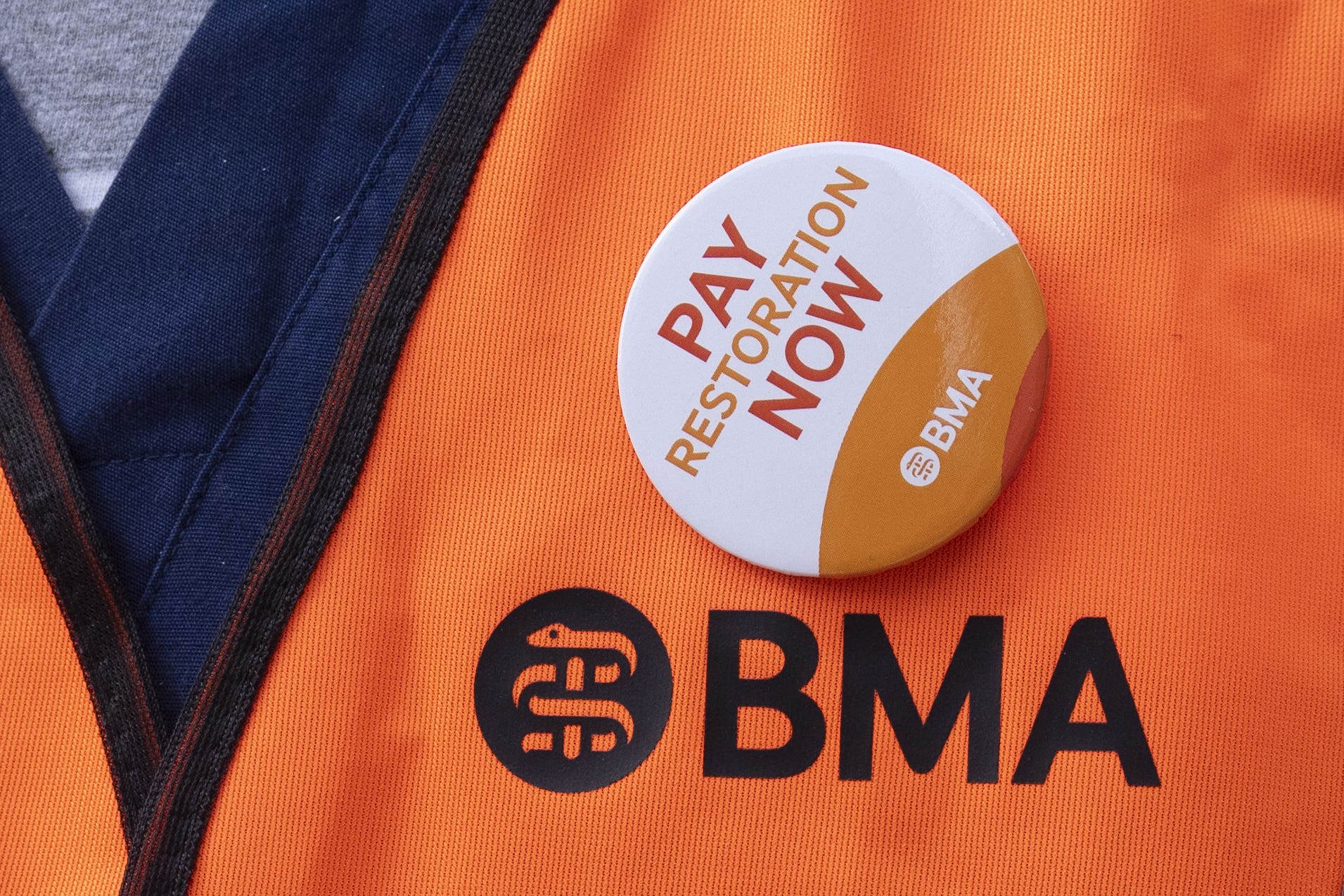All you need to know as junior doctors announce more strikes
Junior doctors have been locked in talks for five weeks.

Your support helps us to tell the story
From reproductive rights to climate change to Big Tech, The Independent is on the ground when the story is developing. Whether it's investigating the financials of Elon Musk's pro-Trump PAC or producing our latest documentary, 'The A Word', which shines a light on the American women fighting for reproductive rights, we know how important it is to parse out the facts from the messaging.
At such a critical moment in US history, we need reporters on the ground. Your donation allows us to keep sending journalists to speak to both sides of the story.
The Independent is trusted by Americans across the entire political spectrum. And unlike many other quality news outlets, we choose not to lock Americans out of our reporting and analysis with paywalls. We believe quality journalism should be available to everyone, paid for by those who can afford it.
Your support makes all the difference.The NHS in England is preparing for a series of strikes over the busy winter months after negotiations between the Government and junior doctors broke down.
Ministers and the British Medical Association (BMA) have been locked in talks for five weeks in a bid to break the deadlock.
Doctors had paused strike action while the negotiations were taking place but officials have now said the talks have ended without agreement.
As a result, junior doctors have announced strikes for December and January.
The December strike – from 7am on December 20 to 7am on December 23 – has been called with just 15 days’ notice.
And the January walk-out – from 7am on January 3 to 7am on January 9 – is thought to be the longest strike in NHS history.
Health commentators have previously raised significant concerns over strikes continuing into the winter, a usually busy period for the NHS.
Health Secretary Victoria Atkins said the strikes will “risk patient safety” and urged doctors to call them off and return to the negotiating table.
More than a million appointments have been rescheduled as a result of strikes, which have beset the NHS in England since last December.
Paramedics, doctors, nurses, physiotherapists and other NHS staff have taken to picket lines over pay.
The strikes have cost the NHS in England more than £1 billion.
While deals were reached with other NHS staff, such as paramedics and physiotherapists, others rejected pay offers and strikes continued into the summer.
Doctors and radiographers are the last staff groups to remain in formal dispute with the Government.
The BMA has been campaigning for pay restoration, saying it has fallen substantially over the last 15 years.
The union said junior doctors’ pay has been cut by more than a quarter since 2008.
The Government’s pay deal, which saw junior doctors in England awarded an average rise of 8.8%, was imposed in the summer and, as a result, frontline doctors ramped up strike efforts with the most recent action seeing both junior doctors and consultants on picket lines together.
While the medics said they were providing ‘Christmas Day cover’ – meaning emergency care would still be provided – NHS officials raised concerns over patient safety during the walkout.
Consultants have since agreed a deal with the Government, which is now being put to members.
Talks with specialty and associate specialist (SAS) doctors are ongoing.
Junior doctors were offered a 3% rise on top of the average 8.8% increase they were already given in the summer.
But the BMA said the cash would have been split unevenly across different doctor grades and would “still amount to pay cuts for many doctors”.